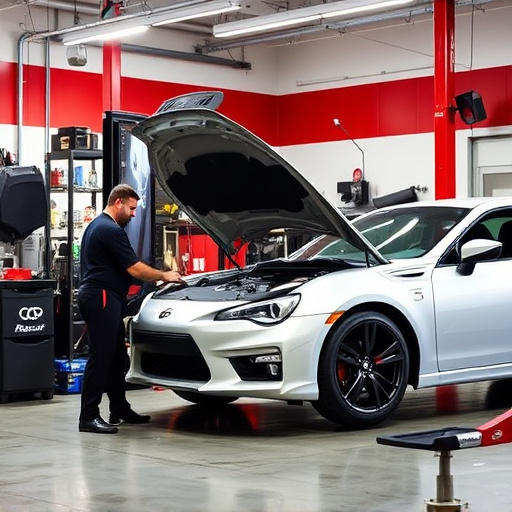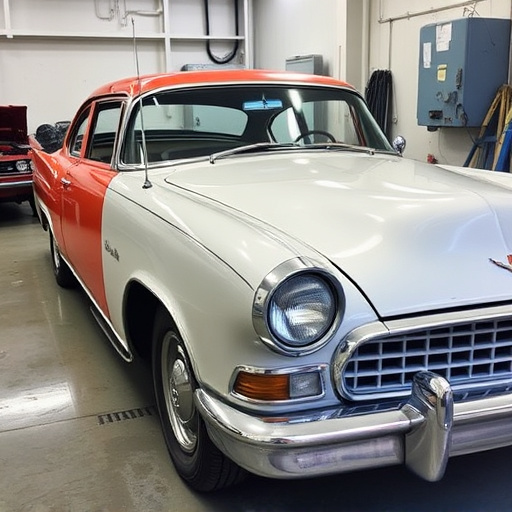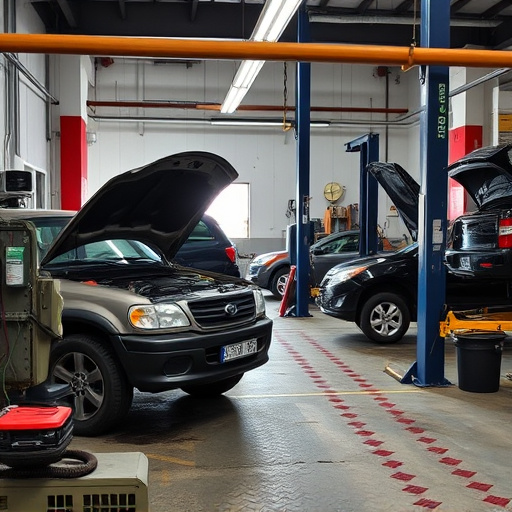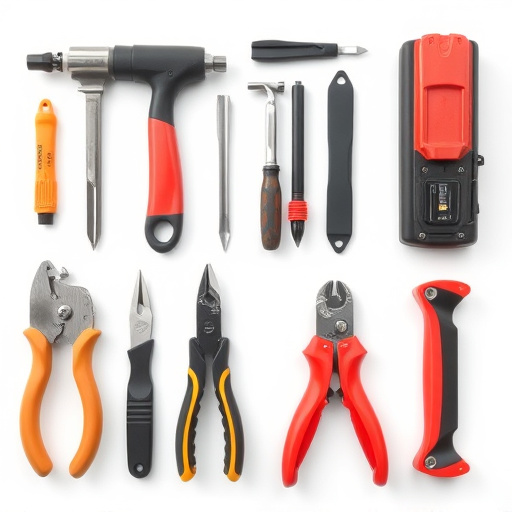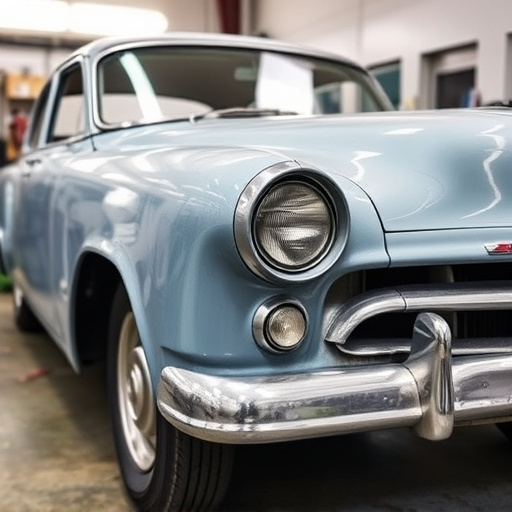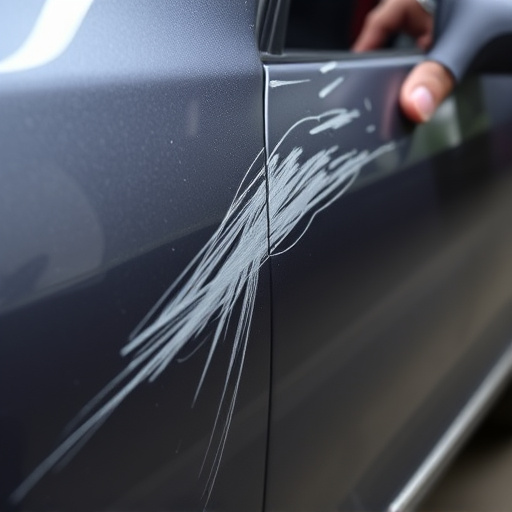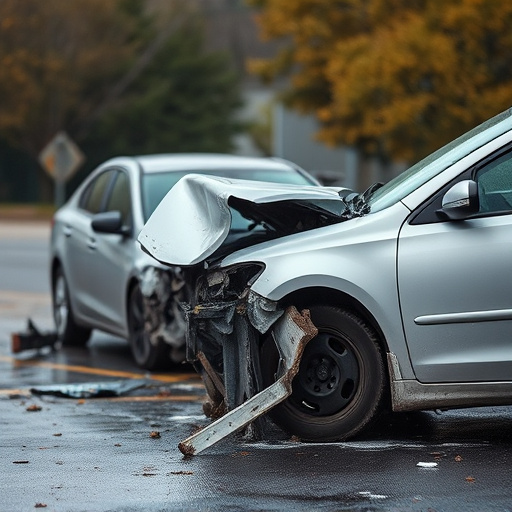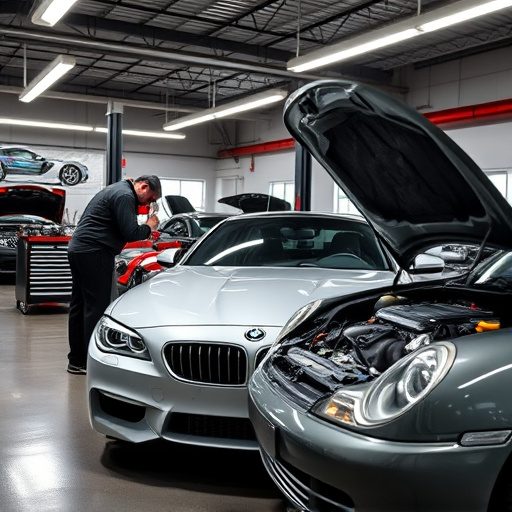In the competitive community collision repair industry, success hinges on customer-focused strategies. By offering personalized services, prompt communication, transparent solutions (e.g., tire services, body shop repairs), and building a culture of active listening, empathy, and problem-solving, shops gain trust and enhance satisfaction. Digital tools for scheduling and pricing, complementary services like loaner cars, and cross-promotion with local businesses further improve the customer experience. Key metrics such as Net Promoter Score (NPS), repeat business, and average repair times measure success in fostering strong community relationships through high-quality work and personalized interactions.
In today’s competitive market, customer-focused service is paramount for community collision repair shops. This article explores the profound impact of prioritizing customer satisfaction on fostering loyalty and growing local businesses. We delve into actionable strategies for cultivating a customer-centric culture, highlighting best practices proven to elevate the user experience in the automotive industry. Furthermore, key metrics are outlined to measure success and ensure continuous improvement in community collision repair services.
- Understanding the Impact of Customer-Focused Service in Community Collision Repair Shops
- Strategies for Building a Customer-Centric Culture within Local Repair Businesses
- Measuring Success: Key Metrics to Assess Customer Satisfaction in Community Collision Repair Services
Understanding the Impact of Customer-Focused Service in Community Collision Repair Shops

In the competitive landscape of community collision repair shops, adopting a customer-focused approach is no longer an option but a necessity. It significantly enhances customer satisfaction and loyalty, which are vital for thriving in this industry. When clients walk into a collision repair shop, they expect more than just efficient service; they seek respect, understanding, and attentive care for their vehicles, often precious assets to them. A customer-focused service strategy ensures that every interaction leaves a positive impression, encouraging repeat business and referrals.
This approach involves personalized communication, prompt response to inquiries, and offering comprehensive solutions tailored to individual needs. For instance, providing tire services, body shop repairs, or frame straightening, community collision repair shops can differentiate themselves by going the extra mile to educate clients about these processes, ensuring transparency and peace of mind. Such practices not only foster trust but also position the business as a trusted partner in the community.
Strategies for Building a Customer-Centric Culture within Local Repair Businesses
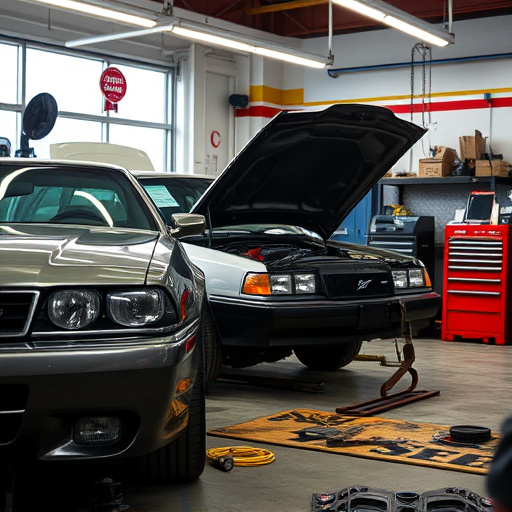
Building a customer-centric culture within local community collision repair shops starts with fostering a mindset shift among employees. Training workshops focused on active listening, empathy, and problem-solving skills can empower staff to anticipate and exceed customer expectations. Encouraging open communication channels allows for immediate feedback, enabling businesses to adapt services accordingly. Personalized interactions, such as remembering regular customers’ vehicles or their preferences, create a sense of belonging and loyalty.
Implementing digital tools for efficient scheduling, transparent pricing, and real-time updates enhances the overall experience. Offering complementary services like loaner cars or local pickup/drop-off options shows dedication to convenience. Collaborating with local businesses for cross-promotion can also expand reach and attract new customers. By prioritizing customer satisfaction through these strategies, community collision repair shops position themselves as trusted, go-to providers in the automotive collision repair industry.
Measuring Success: Key Metrics to Assess Customer Satisfaction in Community Collision Repair Services
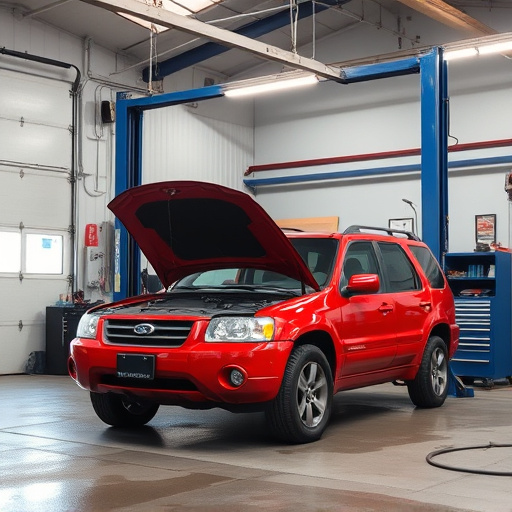
Measuring success in customer-focused service at community collision repair shops involves assessing key metrics that drive client satisfaction. One crucial metric is the Net Promoter Score (NPS), which gauges how likely customers are to recommend the shop to friends and family on a scale of 0 to 10. A high NPS indicates satisfied and loyal patrons, a key indicator of successful customer-focused service.
Additionally, tracking repeat business and average repair time can provide insights into operational efficiency and client satisfaction with car paint services, auto frame repair, and bodywork services. Timely repairs, high-quality work, and personalized interactions contribute to positive experiences, fostering strong relationships with the community.
Community collision repair shops that prioritize customer-focused service thrive by fostering strong relationships and ensuring client satisfaction. By implementing strategies that put customers at the heart of operations, these businesses create a loyal customer base and enhance their reputation in the local community. Measuring success through key metrics related to customer satisfaction allows owners to continuously improve services, ultimately driving growth and profitability in this competitive industry.

